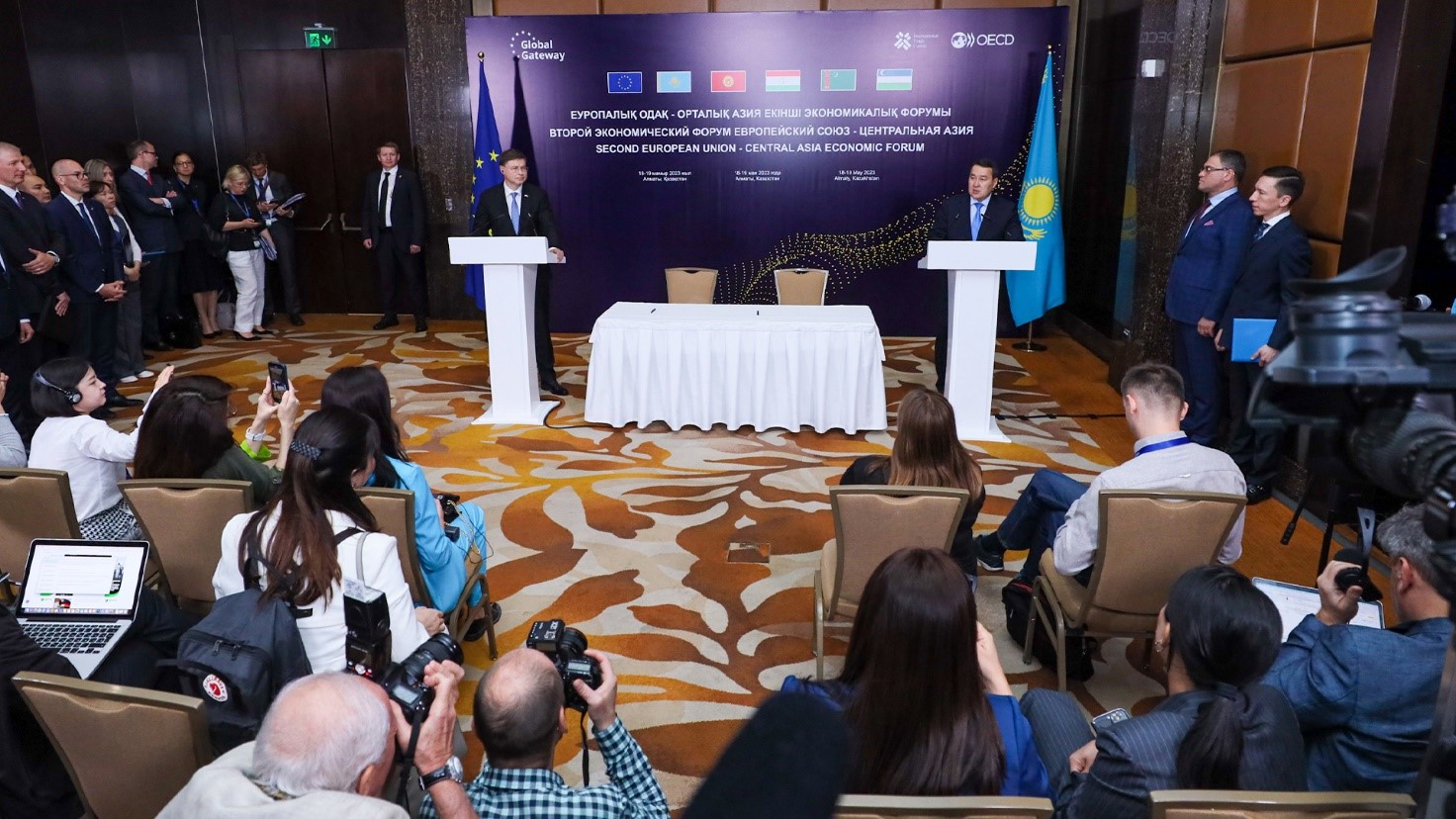Attraction grows between European Union and Central Asia
Brussels has promised the Central Asian partners to mobilise substantial resources for state and private investments of up to EUR 10 billion by 2027. The largest part will go towards the creation of the Transcaspian multimodal corridor, which will be the main alternative to the northern route through Russia and Belarus. Moscow's reactions.
Brussels (AsiaNews) - The "EU-Central Asia" Forum concluded in Brussels on January 30, in which Europeans promised their Central Asian partners to mobilize huge resources for state and private investments by 2027, up to 10 billion EUR.
As several observers comment, for example the political scientist Anatolij Ivanov-Vajskopf on Orda.kz, it can be predicted with great probability that "we will not have to wait long for the response from Moscow and Minsk", the historical protectors of the former Asian countries -Soviet.
European resources are heading towards the new Asian corridors with ever greater intensity after the start of the Russian invasion of Ukraine. They concern oil and gas, black and colored metals, rare earth elements, cotton, wool and various fabrics, raw materials for articles of all kinds of markets.
Meetings in various formats have multiplied in the last two years, with all five countries in the region and especially with Kazakhstan, after years in which European institutions did not seem to show interest in these areas.
The EU representative for foreign affairs, Joseph Borrel, spoke at the Brussels Forum acknowledging that he still knows very little about the Central Asian countries: "In this difficult geopolitical contingency, Central Asia has become a very important partner for us, but still four years ago, when I arrived in Brussels, it was unknown territory for me, while now you are at the center of everything, the cornerstone of relations between Europe and Asia". The reactions of the leaders of Astana, Bishkek, Tashkent, Dushanbe and Ashgabat to these words were enthusiastic.
The most important part of European investments will go towards the creation of the Trans-Caspian multimodal corridor, which will represent the main alternative to the northern route through Russia and Belarus. In this regard, the European Investment Bank has already concluded an agreement with the governments of Kazakhstan, Kyrgyzstan and Uzbekistan for one and a half billion euros, earmarked for the development of transport infrastructure. The declared objective according to the European Commission's estimates is to reach a standard of 15 days for the coverage of the Eurasian route.
Observers, however, warn Central Asian politicians not to be too attracted by the "carrots of European white collar workers", and to consider all the political and economic risks linked to these initiatives.
The two weeks for transport, for example, can only work in optimal conditions, and we must first of all take into account the instability of the Caspian Sea basin, with its treacherous storms that recur quite often, and its water levels that can rise unexpectedly.
Political instability instead concerns the Caucasian route, where the corridors between Azerbaijan and Armenia are far from practicable, and there are still many tensions in this regard. In the border areas of Turkey there are still conflicts with the Kurdish population, which demands autonomy from Ankara and could cause various obstacles.
Nor can we ignore the existence of previous and very deep-rooted agreements between these countries and Russia, which has no intention of allowing itself to be completely bypassed and circumvented in trade routes, and often organizes military exercises on these territories also together with Iran , the other champion country of Western sanctions.
The Russian press has already reacted to Brussels' statements, obviously in a decidedly negative light. In particular, many reproaches were directed at Kazakhstan and its "illusions regarding the promises of Europe", which led to the granting of external administration to 22 local airports.
According to Russian media, “in Central Asia there will be an infestation of advisors and lobbyists from every corporation, who will use investment money to benefit the usual centers of power,” as Izvestia states. The road to Eurasia is still very long, and certainly a few weeks will not be enough to reach the goal.
22/03/2024 11:05
05/02/2025 18:35







.png)










